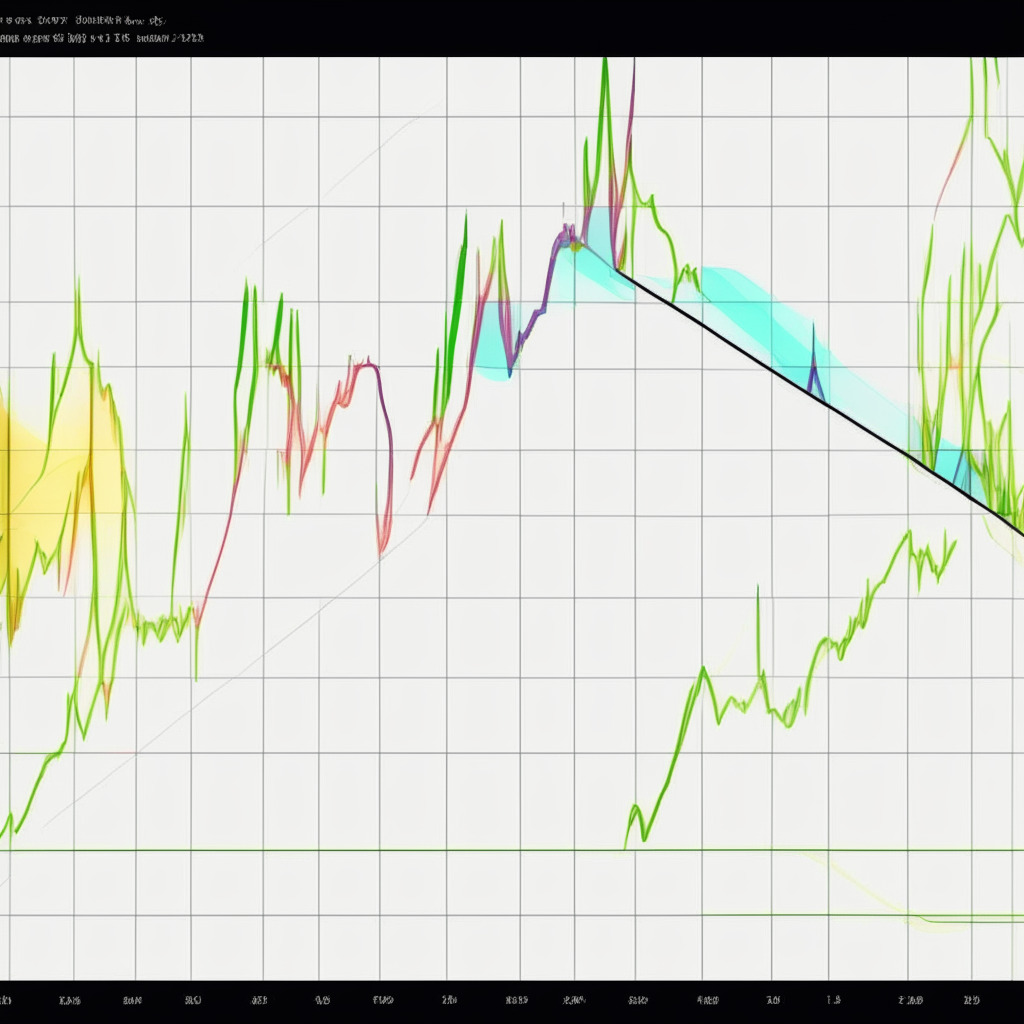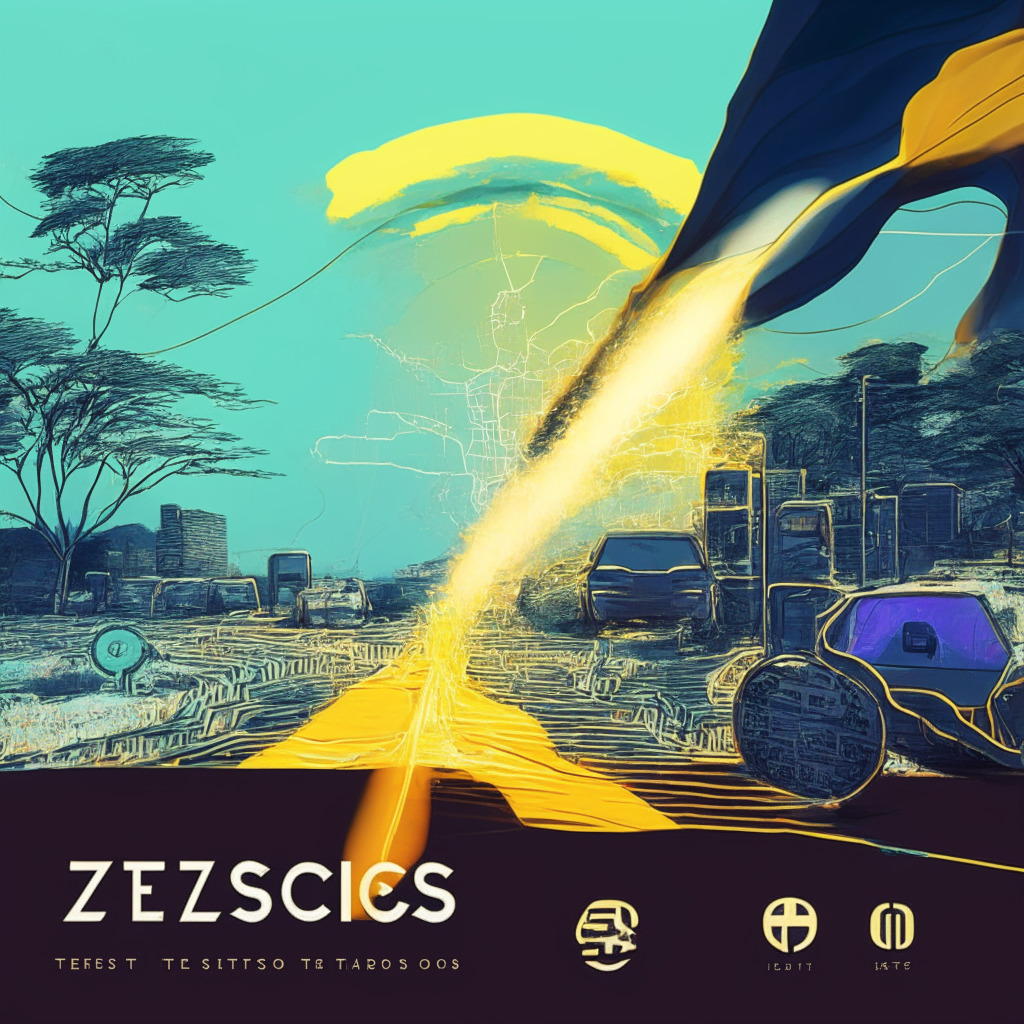“Cryptocurrency markets displayed slight growth with bitcoin and ether maintaining steady values. Enthusiasts are exploring BitDAO and its governance token for unpredictability, while Wall Street Memes’ $WSM token raises over $11m in presale. Stellar focuses on traditional crypto strategies, and yPredict offers AI-based crypto price predictions. Bitcoin SV resists bullish momentum but has investment appeal.”
Search Results for: RSI
Navigating the Friedberg Controversy: A Test of Trust and Transparency in Crypto World
“The Friedberg case raises significant questions about oversight and ethics in the crypto industry. Allegations against him include fraudulent transfers, aiding in misappropriation of user funds, and a breach of fiduciary duty. The case might grossly impact cryptocurrency regulation and perception.”
Decoding the Shift in Cybercrime: Why Bitcoin is No Longer the Preferred Crypto for illegality
Bitcoin’s involvement in crypto crimes has dropped to just 19% in 2022 from 97% in 2016, according to a report by blockchain intelligence firm TRM Labs. This decline highlights the rise in the misuse of other blockchain platforms like Ethereum, Tron, and BNB Chain by cybercriminals, indicating an emergent multi-chain era. The study also revealed inventive tactics employed by criminals, such as “chain-hopping” to avoid detection.
Navigating the Regulatory Labyrinth: Defining the Future of Crypto Businesses
“Binance’s struggles with securing a crypto custody license from Germany’s financial watchdog highlight the increasing importance of regulatory compliance for cryptocurrency firms. Despite setbacks, Binance remains dedicated to achieving compliance, signaling a critical future trend for blockchain-based companies operating within international legal frameworks.”
Decoding Russia’s Supreme Court Verdict: Converting Crypto to Fiat Can Constitute Money Laundering
In a landmark ruling, Russia’s Supreme Court has classified the conversion of Bitcoin to fiat as possible money laundering in cases involving illegal activities. This decision has significant implications for future crypto-related legal scenarios, potentially leading to harsher sentences for unlawful activities involving cryptocurrencies. It also lays the groundwork for future regulations around cryptocurrencies’ involvement in cybercrime.
Ethereum’s New Front-Runner: An In-depth Look at the Power-Packed ERC-1404 Prime
Republic Crypto and Upside have collaborated to create ERC-1404 Prime, an updated version of Ethereum’s ERC-1404 technology. This new standard enhances transfer restriction complexities, preparing tokens for future permutations where decentralized and centralized finance may merge. It aims to align with regulatory expectations and industrial demands, and cultivate assets capable of thriving in uncertain future conditions.
Navigating Regulatory Turbulence: The Shifting Landscape of Cardano’s Pricing Trajectory
The SEC’s allegations against 64 cryptos, including Cardano’s ADA token, have caused market instability and price fluctuations. With heightened regulatory scrutiny, ADA’s price struggled, falling from its May peak of $0.45 to $0.22 in June. The token’s future remains uncertain amidst fears of further losses and delisting from the Robinhood trading app.
The BlockFi Debacle: Bankruptcy Resolution or Complete Liquidation – Which Path Leads to Better Recovery?
“Creditor committee alleges defunct crypto lender BlockFi’s management of fraud and delay tactics amid bankruptcy proceedings. BlockFi’s recent filing suggests a potential 39%-100% recovery for account holders. Still, the question arises whether liquidating the company is the best course for the creditors.”
Binance Backpedals on Delisting Privacy Coins in EU: A Balancing Act between Regulation and Innovation
Binance has reversed its decision to delist certain privacy coins within the European Union, following adjustments to comply with regional regulations. However, crypto like Monero, Beam, MobileCoin, Firo, and Horizen still face potentially being delisted. This move aligns with the EU’s modernized MiCA regulatory standards for cryptocurrency firms. As regulators seek balance, there’s concern about stifling innovation and overreaching into the privacy-focused crypto space.
FTX Founder’s Criminal Trial Progress: A Battle Between Crypto Innovation and Regulation
FTX founder Sam Bankman-Fried’s trial faces multiple criminal charges, including wire fraud and bank fraud, highlighting the ongoing debate surrounding cryptocurrency regulations. The case emphasizes the struggle between emerging digital assets and traditional financial regulations, potentially shaping the landscape of cryptocurrency regulations and the digital asset market.
Recovering $1.3B from 3AC Founders: The Dark Side of Crypto Market and Its Impact on Investors
Teneo liquidators are seeking to recover $1.3 billion from Three Arrows Capital founders Su Zhu and Kyle Davies, who reportedly incurred the debt while the hedge fund was insolvent. This case highlights the challenges in the expanding crypto world and emphasizes the need for increased oversight and regulation to ensure investor safety.
$1.3B Recovery Battle: Lessons from 3AC’s Collapse and the Future of Crypto Regulation
Liquidators are seeking $1.3 billion from Three Arrows Capital’s founders, Su Zhu and Kyle Davies, following the crypto hedge fund’s bankruptcy. The lawsuit highlights the need for increased transparency, oversight, and regulatory measures in the cryptocurrency space to ensure security and accountability.
Shiba Inu Price Recovery: Analyzing Resistance, Downtrend, and Future Prospects
Shiba Inu price experienced recovery, encountering resistance and a potential downtrend due to high supply. Decentralized exchange usage is advised for SHIB holders. For a lasting recovery, surpassing the resistance trendline is vital, while bearish momentum dominates the market.
Hong Kong Crypto Firms Invest Heavily in VASP Licenses: Balancing Compliance and Innovation
Web3 firms in Hong Kong are spending substantial amounts to obtain Virtual Asset Licensing Regime (VASP) licenses, highlighting the industry’s commitment to compliance and regulation. However, high licensing costs may deter smaller firms from entering the market, potentially stifling innovation and limiting competition in blockchain and cryptocurrency sectors.
Swiss CBDC Pilot Launch: Exploring Potentials and Addressing Risks in Digital Currencies
Swiss Central Bank’s Chairman, Thomas Jordan, announced the launch of a wholesale Central Bank Digital Currency (CBDC) pilot program on Switzerland’s SIX digital exchange. Despite exploring CBDC potential, the Swiss Central Bank remains cautious about adopting retail CBDCs due to possible financial system risks.
Ark vs BlackRock: Battle for the First Spot-Bitcoin ETF Approval Heating Up
ARK Investment Management believes it has secured frontrunner status for spot-Bitcoin ETF approval, despite BlackRock leading the race. USDC CEO Jeremy Allaire mentioned well-regulated custody infrastructures, mature spot markets, and effective market surveillance as factors supporting potential approval.
MATIC Price Recovery: Can Polygon Coin Surpass $0.75 Amid Market Sentiment Shift?
The MATIC price displays a steady uptrend with dynamic support to buyers, suggesting the potential to surpass the $0.75 mark. However, decreasing volume in its current recovery and possible selling pressure from overhead trendlines could impact this momentum. Technical indicators suggest a short-term buy signal, but market conditions remain subject to change.
Traditional IRA vs Bitcoin IRA: Weighing the Risks and Rewards for Retirement Planning
This article discusses the differences between traditional IRAs and Bitcoin IRAs as retirement investment options, highlighting their risks, rewards, and unique features. It emphasizes the importance of individual investment goals, risk tolerance, and consulting professionals before making decisions about retirement planning in the evolving crypto market.
Bitcoin Cash Surge: Sustained Growth or Temporary Boost from EDX Listing?
Bitcoin Cash has surged 115.5% in price, reaching $236.6, likely due to its listing on EDX Markets. The rally may lead to an 11.5% increase hitting the $260 mark, but a potential correction phase and resistance level could impede further growth.
Unmasking the Chibi Finance Rug Pull: A DeFi Scam Masterclass and Wake-Up Call for Investors
The Arbitrum-based project Chibi Finance conducted a rug pull scam, stealing over $1 million worth of tokens using a malicious contract. This highlights the challenges and pitfalls in decentralized finance (DeFi) and the need for investors to exercise caution and conduct due diligence.
Dubai’s Rise as Crypto Hub: Regulatory Excellence vs Low Adoption – Can It Succeed?
Dubai and Abu Dhabi excel in regulatory structure for cryptocurrency innovation, but low crypto adoption persists. The UAE’s proactive approach, diverse population, and strategic location foster blockchain use cases and attract major players, aiming to create a top metaverse economy and virtual jobs by 2030.
Binance vs SEC: Ongoing Legal Battle, Court Rulings, and Future Implications for Crypto
A U.S. District Court judge denied Binance’s motion to hinder the SEC from publicizing statements related to their ongoing legal dispute. The case involves allegations, including securities law violations and commingling of user funds. Binance is set to present its defense on September 21.
Top Global Crypto Hubs of 2023: Unraveling the Methodology & Ranking Debate
This article examines the challenges of ranking global crypto hubs for 2023, using criteria such as regulatory environment, grassroots adoption, quality of life, and networking opportunities. Acknowledging limitations and biases, the authors invite feedback from the crypto community.
ChatGPT Revolution: Exciting Potential, Security Risks, and Ethical Concerns Unraveled
ChatGPT, an AI chatbot developed by OpenAI, offers versatile applications in customer service and content generation, but raises concerns regarding safety, security, and biases. Balancing its revolutionary potential with associated risks is essential in shaping AI’s future impact on society.
DALL-E Unleashed: Revolutionary AI Image Synthesis and its Limitations
OpenAI’s DALL-E is a revolutionary generative AI model capable of producing unique visuals from textual descriptions, combining language and image processing concepts. Applications include creative design, marketing, and virtual worlds. However, limitations like biases and lack of contextual awareness require ongoing research to enhance the technology.
Bitcoin ETFs: Navigating Regulatory Hurdles and Future Prospects in the US Market
Circle CEO Jeremy Allaire anticipates regulatory approvals for Bitcoin ETFs as concerns raised by financial watchdogs are addressed, creating a more mature market environment. Regulated custody infrastructure and efficient market surveillance contribute to the growing optimism for approval.
Tezos Nairobi Upgrade: Improved Speed and Fees vs. Low Usage and XTZ Decline
The Tezos blockchain’s 14th upgrade, “Nairobi,” offers transaction speeds up to eight times faster and introduces a new fee mechanism based on network usage. However, Tezos’ low usage and the XTZ token’s underwhelming performance raise questions about its long-term viability in the competitive blockchain ecosystem.
Bitcoin Price Discount on Binance.US: Impact, Future Trajectory, and Legal Disputes
Bitcoin is trading at a $1,000 discount on Binance.US due to potential suspension of USD withdrawals and ongoing legal dispute with the SEC. This impacts Bitcoin’s price as users sell at discounted rates to access funds, reflecting uncertainty among investors and influencing its future trajectory.
Zimbabwe’s Gold-Backed Digital Tokens: A Solution to Hyperinflation or Just a Mirage?
The Reserve Bank of Zimbabwe issued gold-backed digital tokens to stabilize the local currency and offer an alternative to the Zimbabwean dollar. However, experts argue that digital tokens alone cannot tackle high money supply growth, the root cause of the economic problem, and suggest focusing on macroeconomic policies and controlling money supply growth instead.
Ethereum’s Price Struggle: Path to $2,000 or Pullback to $1,600? Analyzing Conflicting Scenarios
Ethereum experienced a 0.4% decrease on Tuesday, unable to maintain its position around $1,900. However, it still holds an 8% gain in the past week. Ethereum staking has seen significant improvement since the Shapella upgrade, indicating investors prefer to hold onto Ethereum rather than keeping tokens on exchanges.
Crypto Execs Accused of Misusing Funds: Unraveling Controversy and Its Impact on Blockchain’s Future
A report alleges former FTX executives used millions in customer funds for unrelated projects, like the $1.8 million “Pineapple House” and $700,000 in FTX Foundation grants. The unfolding controversy raises questions about financial misappropriation trends in the crypto community and the need for increased transparency and robust regulation.
Navigating Bitcoin’s Bullish Outlook: Potential $38,000 Highs and Max Pain Threshold Dangers
Bitcoin price sustains above $30,000, attracting more buyers and aiming to challenge seller congestion between $31,000 and $32,000. Despite consolidation, investors should remain cautious as the Relative Strength Index (RSI) retraces from the overbought region, potentially leading to market turbulence.































